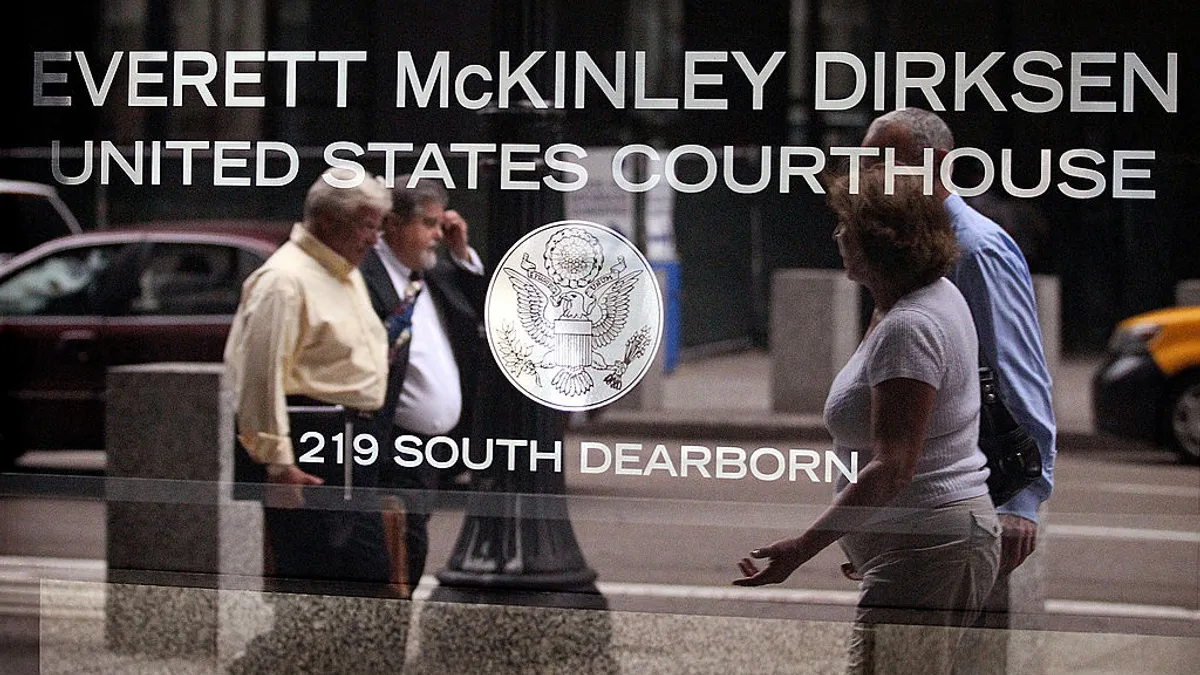In HR Dive's Mailbag series, we answer HR professionals' questions about all things work. Have a question? Send it to [email protected].
Q: A candidate divulged their salary history during an interview. What do we do now?
The answer to this question is the short but frustrating answer to many questions: It depends. Thankfully, the answer depends on only one factor, and that's location.
When job seekers utter their current or previous earnings, that information serves as a cue for recruiters, hiring managers and HR to remember the state and local laws of their jurisdiction, according to Fisher Phillips Partner Kathleen Caminiti.
"It really comes down to knowing the law in their location, and making sure that other important players in the hiring process are aware of the limitations or requirements," she told HR Dive.
The location-dependent answer to the question of volunteered salary history information illuminates the dynamic landscape of pay history. The growing spate of bans is causing a shift in workplace culture. Soon, Caminiti predicted, it will be an expected practice not to discuss salary history during the application process.
"Are you married? Do you have children? What's your date of birth? No one asks those questions anymore, but they did maybe 20 years ago," she remarked. "This is the next wave."
Location, location, location
Legislation banning employers from asking candidates about their salary history information exists in more than 20 states now. The laws generally intend to help candidates who have been historically underpaid — women and people of color, Caminiti said. "The theory is you start low and you stay low," she said. Basing a candidate's compensation on their previous pay level can perpetuate pay disparities, pay discrimination and pay stereotypes.
New York was the first state to put a salary history ban into effect when its state-wide prohibition took effect Jan. 9, 2017. Nevada was the most recent state to join the salary history ban brethren, with its statewide ban going into effect October of last year.
With nearly half of all U.S. states employing some kind of salary history ban, it's important for employers and HR pros to take note of the state they're operating in and the law that applies, Caminiti said. When a candidate volunteers their pay history, "they may not need to do anything because the state they're working in is not regulated," she said.
But there's a good chance they'll need to do something, based on the growing prevalence of statewide bans. There's also local legislation to consider: "New York City and Atlanta have very specific and limiting requirements," Caminiti said. "It really is important to know what you can do."
To complicate matters, many employees now work remotely.
HR's response to a candidate's volunteered information will depend on both the candidate's location and the employer's location. "If somebody is working in Wisconsin, which has banned the concept of a salary history ban, that's fine," Caminiti remarked. "But if they're in Colorado, that's a whole new game."
Caminiti noted that there's no surefire approach to the intersection of remote work and pay equity laws.
"The conservative approach is to consider the law of both locations — the employer's location and the employee's location," she said. "In practicality, the state and local laws may impact whether the laws of the remote location apply."
The continuum of salary history ban laws
In comparing state and local legislation banning employers from considering salary history information, a continuum emerges.
Caminiti classified the most restrictive laws in what she dubbed the "can't ask, can't use" category. California's ban belongs in this group. Employers in the Golden State cannot use a candidate's salary history information to set compensation, even if that information is volunteered. And if a candidate asks for a pay scale, the employer is obligated to disclose one. Similar requirements apply to employers in Cincinnati, Caminiti remarked. "That goes to show you that the laws really are very specific locally."
Next on the continuum are slightly less stringent laws. In this category, employers can't screen employees based on their previous pay rates, but they can confirm salary history information if a candidate offers it. New Jersey's law belongs to this group.
One step further down the continuum are laws that allow employers to consider salary expectations if they are volunteered. Illinois employers are subject to such requirements. Employers can take voluntarily disclosed salary expectations into account when making a salary offer, Caminiti said.
The last stop on the continuum is in the Midwest, where Michigan and Wisconsin have totally departed from the nationwide trend and banned the very concept of the salary history ban.
Considering her continuum, Caminiti has one "big takeaway" for anyone with a candidate sharing their pay history: "You've really got to know what your location is to figure out what you're doing."
HR's plan of action
HR can prepare for the chatty candidate who brings up their past pay. Interview guidelines that spell out the dos and don'ts are a good idea, Caminiti said. But she made one caveat: "It's important that they're correct — the last thing you want is an outdated set of guidelines where the law has changed. You can see that the pay equity laws are evolving quickly. If they are going to develop a guideline, they want to make sure they stay current with the law."
Interview guidelines are important because the application process often involves people who aren't familiar with HR protocol. Good guidelines will help familiarize hiring managers with the nuances of the laws at play, Caminiti said. "Then they won't be asking questions that are prohibited," she said. "If you train individuals regarding what's permitted and what's not permitted, it puts you in a position where it's easier to comply."
California employers can remind recruiters and interviewers that they can't consider salary history information, even if divulged. If a candidate says she's making $80,000 and needs to make $85,000 to consider a job change, the employer needs to offer $90,000 if that's what it planned to offer in the first place.
This move may go against best business practices. "It's counter to a cost-savings approach that many businesses have," Caminiti said. "But they just can't consider it."
Employers may want to document when a candidate reveals pay history information. But, again, this decision depends on the applicable law. Employers in states that allow HR to consider voluntarily disclosed information must have a documentation process, Caminiti said. Documentation would record that a candidate shared the pay history. In states where employers can consider expectations, employers must ensure documentation discusses only expectations, even if a candidate discussed pay history.
As employers consider interview guidelines, they can also review HR documents, starting with applications, job postings and employee handbooks. "Older applications have a spot for current salary or desired salary," Caminiti said. "You want to make sure you have your applications and that they don't have anything that's inappropriate."
Employers may have quite a bit of reviewing and tweaking to do, but it's par for the course in HR, Caminiti said. "It wasn't that long ago that employers really felt that salary information was confidential and that it was inappropriate to be discussing compensation at work," she said. "And now you've got Glassdoor. It's a big sea change in a short amount of time."






















